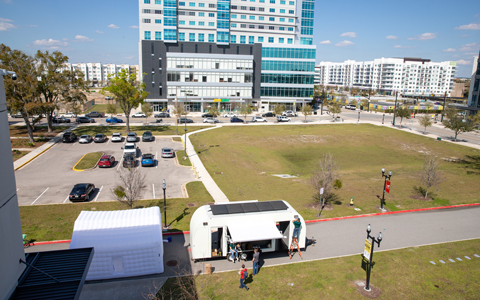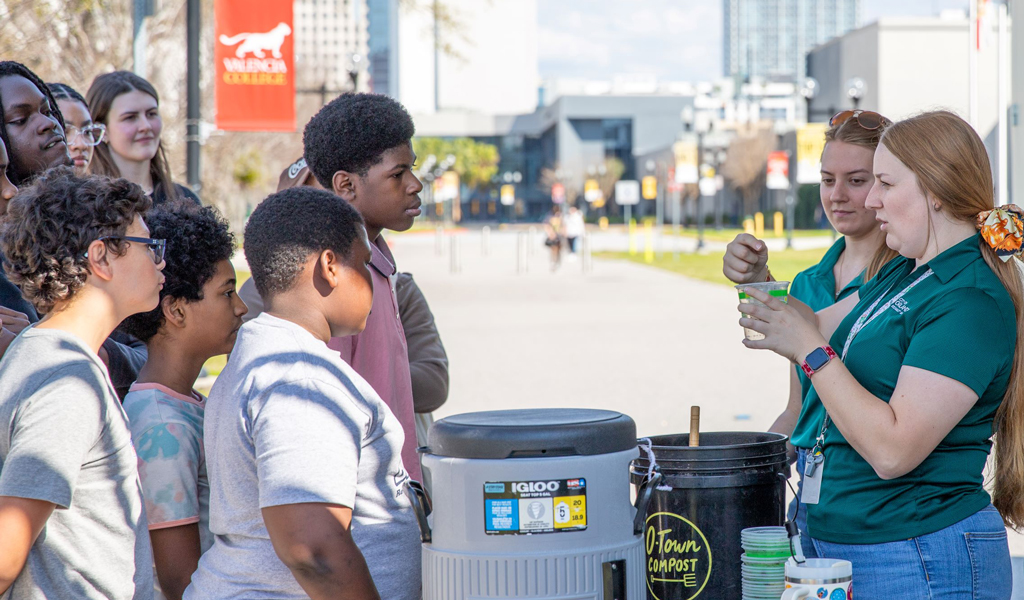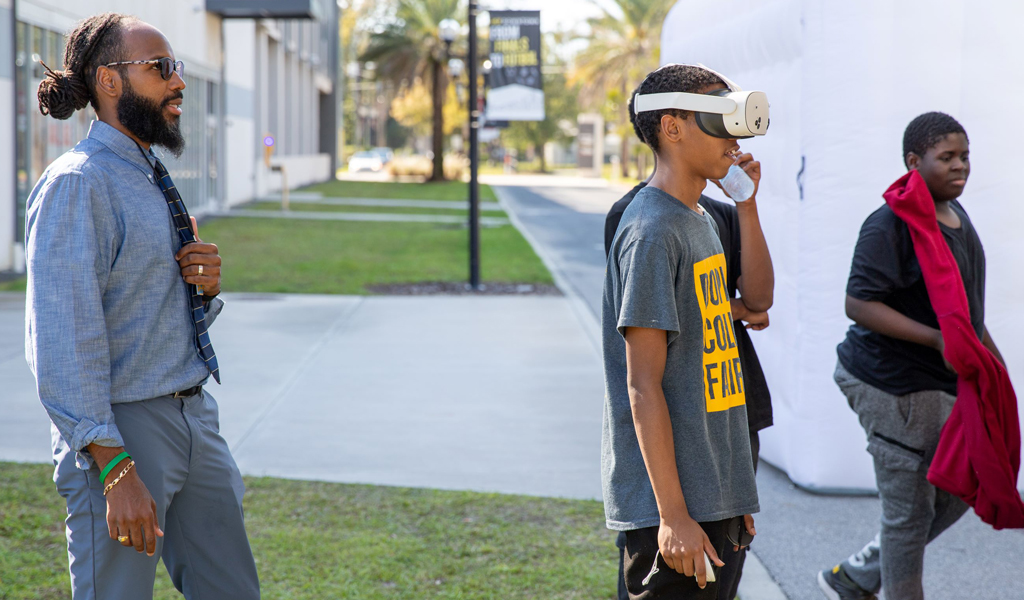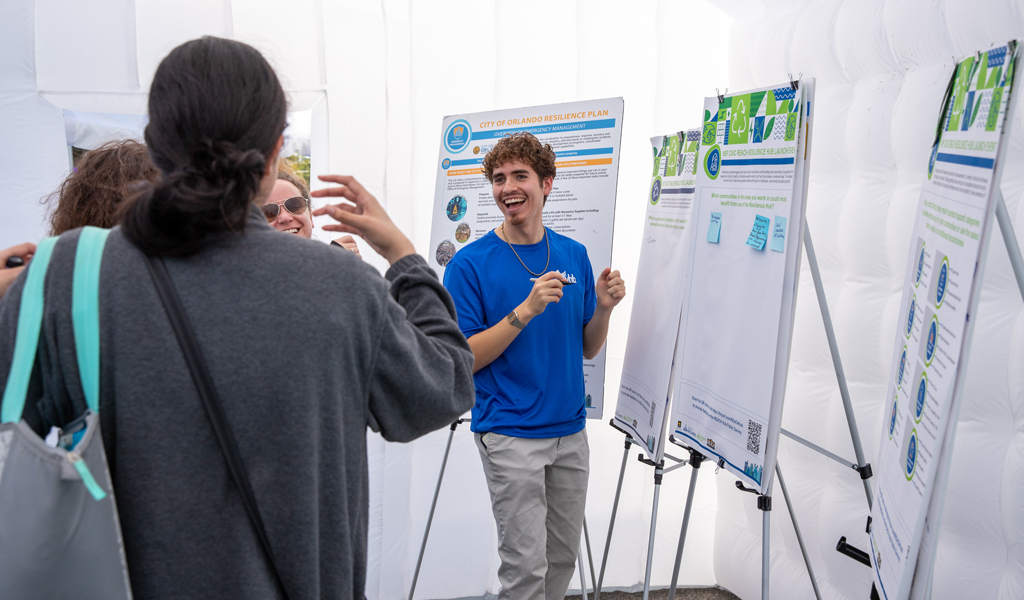
VHB joined Advisory Team partners University of Central Florida (UCF) and the City of Orlando this spring to host a series of kick-off events and launch the Resilience, Education, and Advocacy Center for Hazard Preparedness (REACH) solar-powered mobile resiliency hub. The REACH hub is a first-of-its-kind mobile outreach trailer equipped with adaptable technology and interactive educational tools to help the City respond to disasters and educate residents on resiliency needs.
City staff, UCF professors, and VHB attended the Orlando Wetlands Festival and a UCF Downtown event in partnership with the Boys & Girls Club of Central Florida – Levy-Hughes Clubhouse to introduce the hub to a wide variety of users who experienced firsthand how it will positively impact their communities.
”The partnership between UCF and the Boys & Girls Club is a powerful bridge connecting innovation and opportunity to empower the next generation of leaders,” said Tasha Robinson-Banks, Senior Service Director of Parramore Boys & Girls Club.
The REACH hub was co-designed with the community, including youth, academic advisors, and city staff, to be both a resilience and education hub for Central Florida that would deploy anywhere with an urgent need. The design of the hub was partially inspired by the Tiny Green Home at the Orlando Science Center.

“The REACH hub represents our commitment to working together with partners to find innovative solutions to serve our residents.” said Orlando Mayor Buddy Dyer. “By mobilizing recovery support directly to our neighborhoods, we’re not just responding to disasters for recovery—we’re ensuring residents are able to more quickly recover during what could be their greatest time of need.”
Resilience hubs are intended to serve as temporary centers offering vital services such as electricity, internet access, and various resources during climate crises or emergencies, aiding community recovery after adverse events. The REACH hub will be stocked with necessities like portable battery chargers, emergency supplies, Wi-Fi access, healthful snacks, water, and air conditioning.
VHB’s stakeholder engagement approach prioritized community participation and inclusiveness. This included historically marginalized community members representing under resourced communities which often encounter disproportionate challenges during and after disasters, making full recovery more difficult.

During the planning phase, UCF researchers and VHB planners engaged closely with residents, surveyed hundreds of individuals, and conducted workshops to grasp the values central to the hub's design. Infrastructure, social connections, and educational needs specific to the community were identified.
Alongside city and UCF staff, Katie Shannon, AICP, CNU-a, LEED GA, VHB Senior Community Planner, hopes the hub will serve as a framework that other communities can adopt to create their own resilience hubs, through partnerships with educational institutions, local governments, and residents.
“It’s been great to see the reaction from the community across generations as they interact with the hub and give us feedback,” said Katie. “The youth perspective is so valuable and already shaping its content, how this pilot REACH hub is deployed, and perhaps expanded to a fleet in the future.”
VHB was joined at the kick-off events by many team members involved in the project, including Dr. L. Trenton S. Marsh and Dr. Kelly Stevens, Assistant Professors at UCF; and Mike Hess, Director of Sustainability, Resiliency & the Future Ready Initiative, and Daniel Friedline, Resiliency Initiative Manager at City of Orlando.

“To work alongside youth and see their ideas and understanding about community resilience and vulnerability come to life within the REACH hub’s curriculum has been a highlight of this project,” said Dr. Marsh. “As a community-engaged scholar who believes in citizen science, this project is making real pedagogical connections for youth.”
At both events, City of Orlando Office of Sustainability, Resilience & Future-Ready Initiative staff were on site to talk about sustainability and resiliency in action and provide education about career pathways in STEM to members of the Boys & Girls Club of Central Florida. UCF professors also walked students through a virtual-reality emergency operations center and urban garden using virtual reality headsets.
Learn more about how VHB is helping communities become more resilient.


